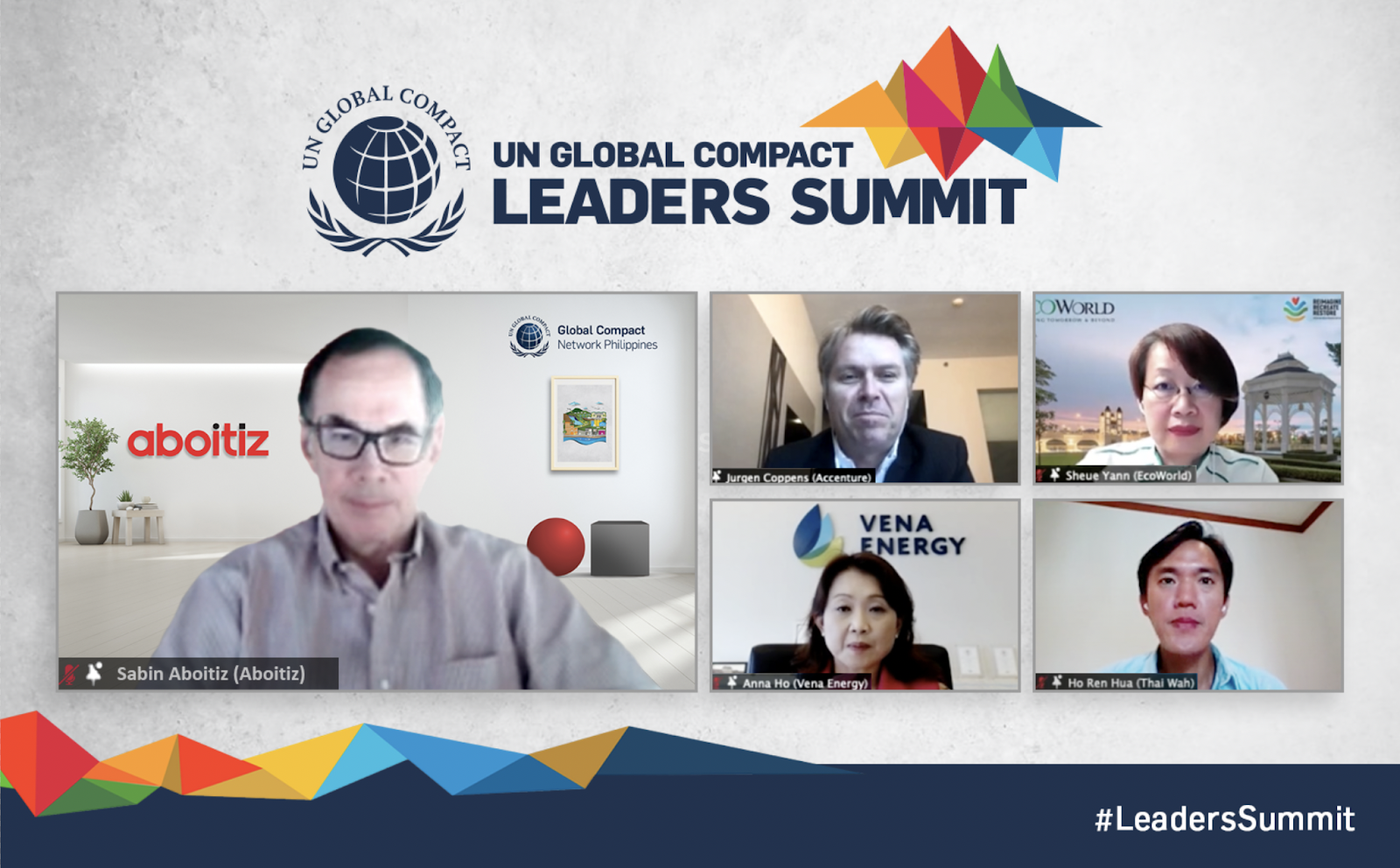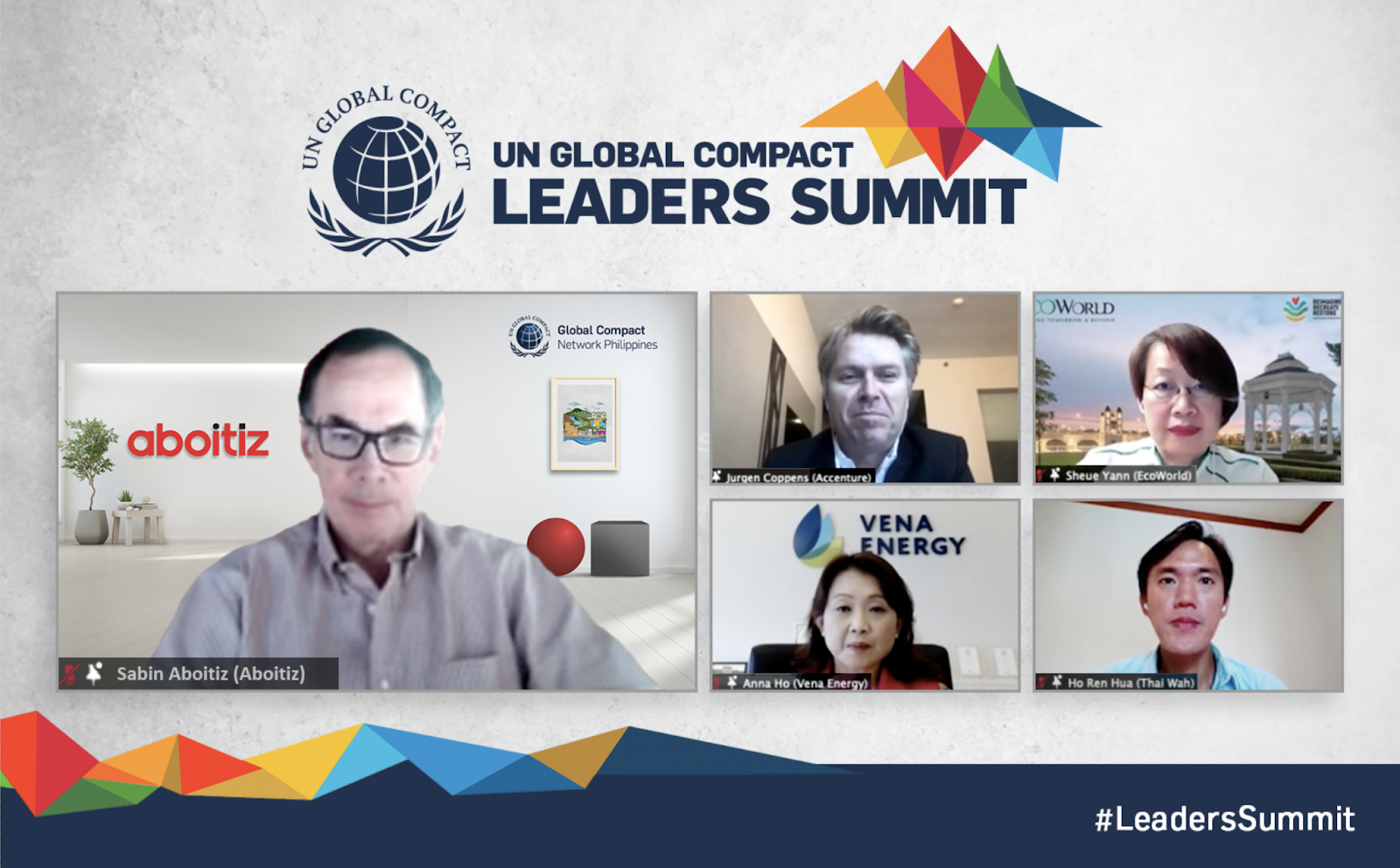Aboitiz Group President and Chief Executive Officer Sabin M. Aboitiz joined business leaders across the world at the UN Global Compact Leaders Summit to tackle the converging global crises of the COVID-19 pandemic, climate change, and economic inequity in order to develop a roadmap for sustainable recovery.

As a member of the UN Global Compact and the Global Compact Network Philippines Board of Trustees, the Aboitiz Group was invited to share its unique perspective on the topic of Energy Transition for A Sustainable Future as outlined by the Sustainable Development Goals (SDGs). SMA highlighted the growing social and economic disparity between developed and developing economies, a gap that he believes the policies formed by richer countries should aim to narrow.
[Inequality] prevents us from being competitive. It prevents us from providing affordable power, which is a requirement of SDG 7 (Affordable and Clean Energy). It prevents us from achieving SDG 1 (No Poverty) by restricting our capital and redirecting already limited resources elsewhere. We all deserve to be developed countries, so we need to solve this problem, but we cannot do it alone; we need the richer countries to understand that we are not at their level.
—Sabin M. Aboitiz, President and CEO, Aboitiz Group
Long before the establishment of the SDGs, the Aboitiz Group has built its products and services around being an inclusive business that creates opportunities to uplift the lives of all its stakeholders across the Philippines, especially those facing economic hardship.
“Poverty, not just for us but for the entire world, is one of the greatest problems we face,” SMA said. “One way to diminish poverty is to create jobs, and to create jobs we need to attract industry, and to attract industry we need to have competitive infrastructure and power,” he pointed out.
For growing economies to achieve the objectives outlined in the SDGs, SMA said there should be a balance that allows each country to develop at its own pace, as trying to keep up with the standards set out by far more advanced countries may end up being counterintuitive in the long run.
“Sustainability is our common and necessary goal and in order to achieve it, we must be able to see the whole picture, undistracted by misinformation or a lack of information,” he emphasized. “We must all be fully informed about all the costs and benefits of renewable energy and find a sensible way to balance them with respect to our own individual situations.”
The Philippines has made headways into renewable energy, with a significant percentage of the nation’s power being generated from clean energy sources. For its part, the Aboitiz Group — along with its partners — owns and operates the largest installed capacity for renewables in the country and is set on further expanding its clean energy portfolio to an even 50-50 renewable-to-thermal energy mix by 2030.
“We are already using much more renewable energy than a lot of other countries; more than 30% of our power is already clean,” SMA cited. “For SDG 13 (Climate change action), we are making significant strides to align with the goals of the Paris agreement. These include much more defined governance, strategies, targets, and metrics on climate action. We are also reducing waste and Greenhouse gas emissions, promoting responsible water consumption, and contributing to the recovery of a circular economy.”
The Aboitiz Group’s purpose and brand promise to drive change for a better world by advancing business and communities is the company’s direct response to the unique needs of its host communities. These serve as guiding principles behind the company’s strategic business decisions, whether it be energizing economic frontiers, promoting financial inclusivity especially in the countryside, or building sustainable infrastructure.
In support of the Global Goals, the company is focused on areas in its business value chain such as providing access to affordable and clean energy (SDG 7), contributing to food security (SDG 2), clean water (SDG 6), sustainable communities (SDG 11), and development of innovative infrastructure (SDG 9) while, at the same time, providing decent work (SDG 8) and managing impacts to climate change (SDG 13), life below water (SDG 4), and life on land (SDG 15).


